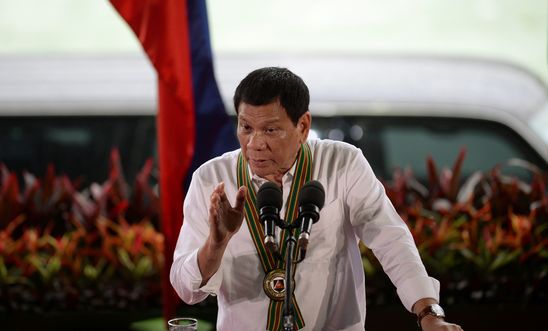
Press releases
Philippines: 32 killed in a day as Duterte's 'war on drugs' hits new levels of barbarity

After Philippine police killed 32 people in what is believed to be the highest death toll in a single day in President Rodrigo Duterte's so-called ‘war on drugs’, Amnesty International’s Director for Southeast Asia and the Pacific, James Gomez, said:
"These shocking deaths are a reminder that President Duterte's lawless 'war on drugs' continues unabated and actually appears to be plumbing new depths of barbarity, with police routinely gunning down suspects, violating the key right to life and completely flouting due process.
"No-one is bearing the brunt of this brutality more than the poorest communities in areas such as Bulacan province, a hotspot for extrajudicial executions since the president took power, and the scene of 21 of yesterday's 32 killings.
"Duterte’s recent statement that he might not be able to solve the Philippines' drug-related problems during his current term are very concerning. With the indefinite extension of this failed strategy there is seemingly no end in sight to these killings.
"Coupled with Duterte's troubling threat last month to abolish the country's Human Rights Commission, the single institution that is carrying out thorough investigations into extrajudicial executions, it appears that human rights in the Philippines are in more peril than at any point since the president's bloody reign began.
“This shows clearly that there should be no further delay in establishing an internationally led investigation into the ‘war on drugs’ and the carnage currently taking place in the Philippines on a daily basis.”
Meanwhile, the number of police killings of suspected drug dealers has skyrocketed in Indonesia this year, an alarming rise which signals that authorities could be looking to emulate the murderous ‘war on drugs’ in neighbouring Philippines.
At least 60 suspected drug dealers have been killed by police – some of whom have been seconded to the National Narcotics Agency – since 1 January 2017, compared to 18 in all of 2016, according to data gathered by Amnesty.
The national police chief General Tito Karnavian this month told police officers “not to hesitate shooting drug dealers who resist arrest”. General Karnavian has also hailed President Duterte’s ‘war on drugs’ as an example of how to make drug dealers “go away”.
Usman Hamid, Director of Amnesty International Indonesia, said:
“President Duterte should not under any circumstances be considered a role model for Indonesia. Far from making the Philippines safer, his bloody ‘war on drugs’ has led to the deaths of thousands without any form of accountability.
“This shocking escalation in unlawful killings by the police sounds serious alarm bells. While Indonesian authorities have a duty to respond to increasing rates of drug use in the country, shooting people on sight is never a solution. Not only is it unlawful, it will also do nothing to address the root causes that lead to drug use in the first place.
“The authorities must remember that everyone, including people suspected of drug offences, have a right to life that must be respected at all times.”
Police claim that all the killings have been in self-defence or because suspects tried to flee the scene. But as far as Amnesty is aware, authorities have not conducted independent investigations into any of these incidents.
Background
In its January 2017 report ‘If you are poor you are killed’, Amnesty detailed how the Philippines police have killed, and paid others to kill, thousands of alleged drug offenders in a wave of extrajudicial executions that may amount to crimes against humanity.